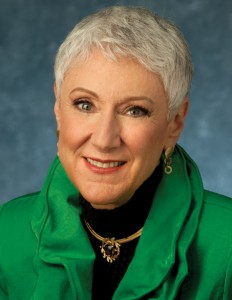Hadassah
President's Column
President’s Column: The Road to Jerusalem
 The biggest snowstorm of the new century came to Israel in December, blanketing much of the country with a beautiful frosting but also paralyzing roads. One morning on Highway 443 to Jerusalem, two pregnant women in separate cars were stranded while trying to reach Hadassah Hospital on Mount Scopus.
The biggest snowstorm of the new century came to Israel in December, blanketing much of the country with a beautiful frosting but also paralyzing roads. One morning on Highway 443 to Jerusalem, two pregnant women in separate cars were stranded while trying to reach Hadassah Hospital on Mount Scopus.In the same traffic jam was Dafna Cohen, head nurse in pediatrics at Hadassah–Mount Scopus. Seeing flashing lights next to a car on the side of the road, she stopped and helped a medic on the scene deliver a baby. She also called Hannah Kasten, deputy head of nursing in the Mount Scopus delivery room, who commutes along the same road. Kasten, who was just minutes away, arrived and stayed with mother and child until an ambulance could pick them up. While waiting, police found another pregnant woman in the nearby traffic. Kasten examined her, too, and determined that she could make it to the hospital without assistance.
For 101 years, Hadassah’s medical personnel have been saving lives and bringing new life into the world—not just in the hospitals we built, but also in neighborhoods, homes and even cars.
The nurses on Highway 443 offer a small window on a panoramic picture of Hadassah’s work. You have no doubt heard about the financial crisis affecting our medical center. After months of negotiations, the Israeli government has agreed to provide the assistance our hospitals need to eliminate a crushing debt built up over many years. There are still details to work out, and the assistance is tied to a restructuring plan that includes some layoffs and also increased revenue. But the partnership we counted on with the State of Israel has held firm.
It held firm because in a nation with many good hospitals, there is widespread recognition—among leaders and citizens—that Hadassah is unique. We not only built the country’s health care foundations, we continue to lead and inspire. Our staff accounts for at least half the articles published by Israeli physicians and researchers each year in major medical journals. The Hadassah Medical Center is not only a source of pride for us, but for Israel as well.
The Finance and Health Ministries worked with us to devise a recovery plan for another reason as well: Though many factors contributed to our debt, a major source of the crisis is the nation’s system of funding health care.
Like government-owned hospitals, we treat anyone who comes through our doors. But like private hospitals (many of which do not have our open-door policy) we get no government money beyond what National Insurance pays for individual patient care. Indeed, we provide private-level care and receive public-level reimbursement. If a public hospital needs a new roof, the government pays. If we need a new roof—or a new hospital tower—we pay.
In the Jewish nation, everyone agrees on the need for top-level medical care—even if there are debates about how to achieve it. But one constant since discussions between Hadassah and the government began last summer has been the expression of respect and support, not only for our historic role, but also for our continuing leadership. At one point in December, President Shimon Peres, who had cancelled his other appointments because of illness, insisted on going ahead with a scheduled meeting with a Hadassah delegation working on the recovery plan. He praised HWZOA for its achievements and its values—and asked what he could do to help.
Hadassah’s medical mission began in 1913 with two nurses. We built a medical system of bricks, mortar and steel, using the highest technology and the greatest expertise—much of which we have shared with other hospitals, physicians and patients around the world.
But the most important element—the human one—was there from the beginning. Sometimes, like on Highway 443, doing our job again comes down to two nurses. From the microsystem we built a macrocosm, but the micro is still there. We are the yesterday and tomorrow of Israeli medicine. We never leave the scene, and we show up wherever we are needed.









 Facebook
Facebook Instagram
Instagram Twitter
Twitter
Leave a Reply